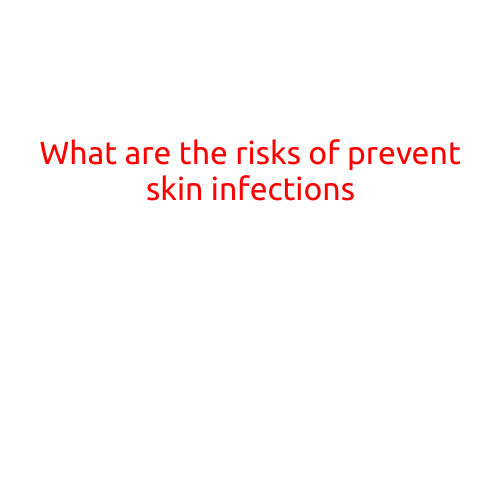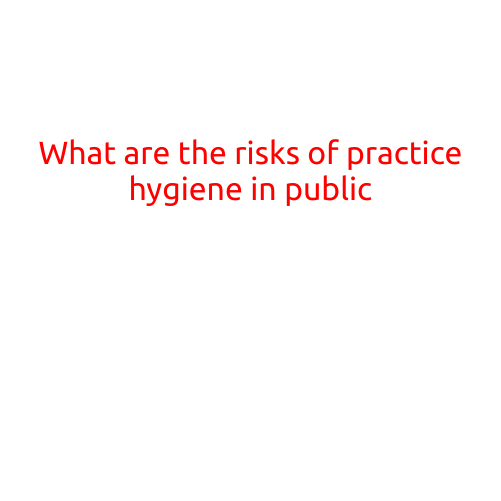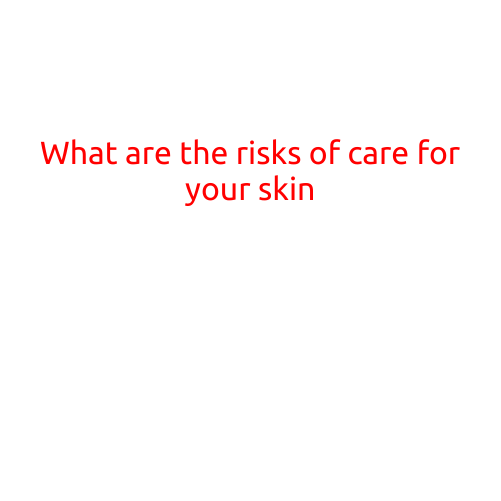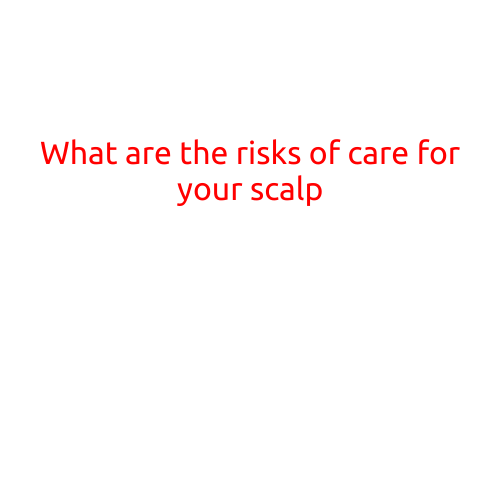
What are the Risks of Preventing Skin Infections?
Skin infections are a common occurrence, making up a significant portion of doctor’s visits and hospital admissions every year. While preventable in most cases, skin infections can have serious consequences if left untreated or prevented. In this article, we will discuss the risks of preventing skin infections and why it is crucial to take preventive measures.
Risk of Worsening the Condition
When skin infections are left untreated or prevented, they can worsen over time, leading to more serious complications. Bacterial infections, for instance, can spread to other parts of the body, causing sepsis, a potentially life-threatening condition. Fungal infections can cause systemic illnesses, while viral infections can lead to spread to other people if not properly managed.
Increased Risk of Antibiotic Resistance
Overuse and misuse of antibiotics to prevent skin infections can contribute to the development of antibiotic-resistant bacteria. This can lead to a decrease in the effectiveness of antibiotics against certain infections, making it challenging to treat them. The World Health Organization (WHO) has identified antibiotic resistance as a major global health threat, and the overuse of antibiotics in skin infection prevention is a significant factor.
Social and Emotional Impact
Skin infections can have a significant social and emotional impact on individuals, particularly in children. Uninterrupted absences from school, difficulty participating in physical activities, and feelings of embarrassment or shame can all contribute to psychological distress. In adults, skin infections can affect self-esteem, confidence, and overall well-being.
Long-Term Consequences
Chronic skin infections can lead to long-term consequences, such as:
- Scarring: Frequent skin infections can cause scarring, which can affect appearance and self-esteem.
- Increased risk of skin cancer: Certain types of skin infections, such as molluscum contagiosum, have been linked to an increased risk of skin cancer.
- Disfiguring conditions: Chronic skin infections can lead to disfiguring conditions, such as elephantiasis, which can have a significant impact on daily life.
Prevention is Key
Preventing skin infections is crucial to avoiding these risks. Here are some effective ways to prevent skin infections:
- Maintain good hygiene: Wash your hands frequently, especially after touching wounds or contaminated surfaces.
- Keep wounds clean and dry: Cover wounds with clean dressings and change them regularly to prevent bacterial growth.
- Avoid sharing personal items: Refrain from sharing personal items, such as towels, razors, or clothing, to prevent the spread of infection.
- Practice good hygiene during sexual activity: Use condoms and practice safe sex to prevent sexually transmitted infections.
Conclusion
Preventing skin infections is crucial to avoiding the risks associated with them. By taking preventive measures, such as maintaining good hygiene, keeping wounds clean and dry, and avoiding sharing personal items, individuals can reduce their risk of developing serious skin infections. While antibiotics may be necessary in some cases, overuse and misuse must be avoided to prevent antibiotic resistance. By taking a proactive approach to skin infection prevention, individuals can protect their health, well-being, and quality of life.





